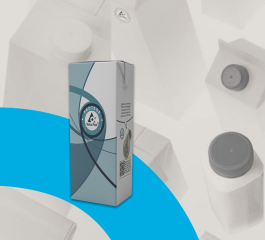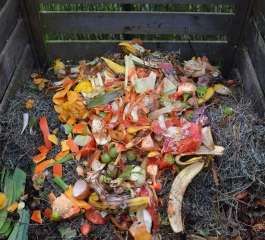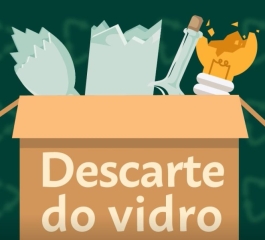>
Therefore, it is very important to understand whether they are recyclable and also how to dispose of them correctly.
Materials that make up the toothpaste tube
Toothpaste tubes are traditionally made from a combination of plastics and aluminum, although the composition can vary by brand and manufacturer.
Let’s look at the common materials found in these tubes. As far as plastic goes, most toothpaste tubes are made of flexible plastic such as low-density polyethylene (LDPE).
Or high-density polyethylene (HDPE). This inner layer of the tube is essential to prevent toothpaste from leaking and maintain its shape.
On the other hand, aluminum assumes the role of an external layer, giving the tubes strength and protection against physical damage.
In addition to these main components, toothpaste tubes can also contain printing resins and inks, depending on your specific packaging needs.
Impacts they cause on the environment
The mixture of plastic, aluminum and other elements is the basis for the production of these hygiene items that are so common in our daily routine. However, it is worth considering the impacts caused by the object on the environment.
First, the combination of plastic and aluminum makes it difficult for recycling facilities to properly separate these materials, which leads to these tubes being rejected or sent to landfills and incineration.
In addition, materials degrade slowly, resulting in discarded pipes remaining in the environment for decades or even centuries.
Additionally, improper disposal of pipes causes soil and water pollution, releasing toxic substances and contaminating groundwater.
Another worrying factor is that the manufacture of these tubes consumes natural resources, such as oil and bauxite, contributing to the depletion of these finite resources.
Are toothpaste tubes recyclable after all?
The recyclability of toothpaste tubes varies depending on their composition and the local recycling infrastructure.
As stated earlier, most are made from plastic and aluminum, making it difficult to recycle compared to more common packaging materials.
Toothpaste tubes are considered difficult to recycle due to the hassle of separating the plastic and aluminum at recycling facilities.
In some cases, sorting machines fail to identify and separate these materials properly, resulting in tubes being rejected or other recyclable materials being contaminated.
With that in mind, however, brands and companies are embracing sustainable solutions, offering recyclable toothpaste tubes to reduce their environmental impact and promote greener practices in the industry.
How to dispose of them?
Toothpaste tubes can be used for the selective collection of plastics. Specialized companies and cooperatives separate the elements.
When disposing of them, it is crucial to reduce the residues as much as possible to avoid contamination of the water in the treatment. Discarding the tube with the cap is essential to avoid contamination during the washing of the materials.
Dispose of the toothpaste packaging, wrapped in a protective box, in the paper collection.
Verifying that the box has the FSC certificate is interesting, indicating its sustainable origin. Some markets allow you to take only the dental tube, discarding the box on the spot.
There are also toothpastes sold without the box, which contributes to the reduction of waste.
Conclusion
In summary, the article addresses the recyclability of toothpaste tubes, their materials and impacts on the environment, as well as providing guidelines for correct disposal.
Although tubes are predominantly plastic and aluminum, recycling is challenging.
However, brands are looking for more sustainable alternatives, offering recyclable tubes. Proper disposal involves the separation of materials and their destination in the proper selective collection.
Consumer awareness is crucial to promoting greener practices and reducing the environmental impact of these packages.


